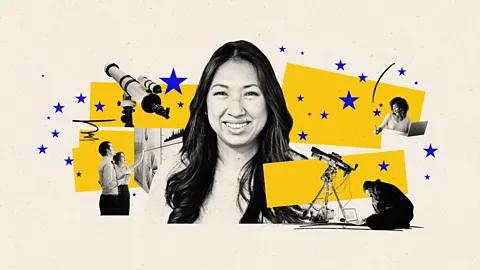Nhung Ho, vice president of artificial intelligence at Intuit, enters the BBC’s Executive Lounge to talk about finding data-driven answers in the dark, and how it’s never too late to innovate.
When Nhung Ho moved from Vietnam to the US, aged five, she struggled with English. Then, in grade two, her universe expanded. “My teacher opened up a big picture book about astronomy. And I don’t remember what it was, but it just clicked. It was like I was in love,” she tells the BBC. “And I actually learned English by reading astronomy books.”
The moment eventually led her to a PhD in astrophysics from Yale University, where she completed her doctoral thesis on the evolution of dwarf galaxies. But after 20 years of chasing the stars, Ho decided to take her career in a different direction: data science.
She knows her career journey isn’t typical, but she sees a strong parallel between the two disciplines. “My passion is for solving non-obvious problems using simple techniques with vast amounts of data,” she says.
This approach is what landed her at American multinational financial-software company Intuit, where she is the vice president of artificial intelligence. Working across the firm’s suite of personal-finance and small-business software, including QuickBooks and TurboTax, Ho has been a driving force in evolving AI from a niche department to the core of Intuit’s future strategy. The company is committed to becoming an “AI-driven expert platform” Ð connecting millions of customers and small-business owners to a fully customised, tech-driven experience.
Ho is leading the charge Ð and the skills that made her successful as an astrophysicist are the same ones she uses now. More than anything, it’s following the story the data tells, even if it means challenging your own assumptions.
“One of the questions my team members ask is, ‘how many times can we fail?’,” says Ho. “But I don’t quantify experimentation as a failure Ð I quantify it as a pivot towards building that final solution that goes out the door. You need to be able to quickly pivot when you get new data. That’s what it means to be data driven.”
Ho talks to the BBC about why AI doesn’t solve problems on its own, using data to demystify challenges and finding answers in the dark. First Ð what do dwarf galaxies have to do with data science?
Dwarf galaxies are unique in that they’re 99% Dark Matter, which means you can’t really see them. They’ve only got a couple-thousand stars in them. They’re thousands of light years away, and basically invisible in the sky. My job was to identify these dwarf galaxies and map them. And it’s actually very similar to my job now as a data scientist: I’m trying to find needle in the haystack.
As an academic, I was trying to find galaxies using a vast trove of data coming from the sky. At Intuit, I’m looking for insights from a vast trove of data coming from our users. I use a lot of the same techniques. We find the insights within the data and build something out from it Ð the way I built out a map of dwarf galaxies. The bonus now is I have real world consumer-facing impact, which was something that I was really missing in academia. I was a user of Intuit products long before I worked here. I used it to keep track of my personal finances. I was a user of TurboTax to do my taxes. And as a user, I saw a lot of opportunities for improvement because it didn’t seem like the products were getting any smarter.
I had this vision for TurboTax where I thought it should be able to do my taxes much faster with less manual work on my end. I also kept a budget with QuickBooks, and the program miscategorised a few transactions every month. I had to manually change them.
Part of my interview process was explaining a couple ways that I thought I could make the product better, including improving machine-learning models. And then within six months, I was able to work on some of those problems. For instance, on our end, we know when our users are correcting us, and we take that as a signal to tell us how well our models are doing. My team was able to adjust the models and we immediately saw a decrease in user corrections.
These things might seem small, but personal finance is hugely important to the individual. Taxes are hugely important. People need this help, and they need to trust the products they’re using to get that help. How do you lay the foundation for a successful and responsible AI strategy?
It’s been five years since we accelerated AI and declared, as a company, we were going to be an AI-driven expert platform. We started very small, and the first thing we did was make a huge investment in our data organisation and our data platforms. That’s critical because AI doesn’t solve anything without good data.
The investment in those data platforms helped me build the team faster. We were able to get more work out the door and get it to our customers with confidence that we were providing what they wanted and needed.
A big part of the scaling of the AI organisation is choosing which problems to solve. Using our data, we identified a couple of smaller problems and solved them very fast as proof of concept. That proved to the organisation and the consumer that we were equipped to solve bigger problems using the same methods. We need to fall in love with the problem before the solution. Do you see places other industries could benefit from building out a robust AI infrastructure?
There’s a lot of talk about how AI can be helpful with healthcare, and I agree. Understanding the systems of healthcare, like the systems of personal finance and small business, can feel daunting to many people. I don’t have the same training that my doctors do. I don’t have the same knowledge that they do. But boy, do I wish I could understand what the heck they’re saying.
You can go down the WebMD rabbit hole and come up with some scary disease, because we don’t know the technical terminology. We don’t know the questions to ask Ð it’s like looking for the right problem to solve as a data scientist. Right now, there’s a lot of knowledge in healthcare that’s inaccessible, but that large language models could unlock. It’s not as if it takes away the need for a physician and their expertise, but it helps just translate that expertise and democratises it, so that the average person can go in they can look at their own medical records and understand.
How should businesses of all stripes be thinking about AI?
Start-ups are not the only companies that can benefit from AI. We are 40-year-old enterprise company. If we can do it, any enterprise should be able to do it. A lot of people get worried and think, ‘Oh, I’ve missed the boat’. There’s no missing the boat Ð the boat continues to run. You can always jump on the boat.


